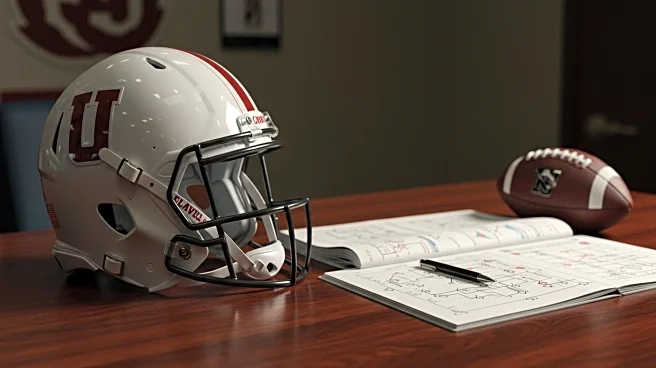What's Happening?
The University of North Carolina (UNC) has announced that Bill Belichick will take on the role of head football coach, marking a significant shift in the program's approach. Unlike many college football coaches, Belichick will not participate in the Tar Heels' weekly radio show, a staple in college football culture. Instead, the program's general manager, Michael Lombardi, will handle these appearances. This change reflects a broader trend in college football where live fan interactions with coaches are becoming less common. The decision follows a pattern where schools have moved away from live call-ins due to various issues, including negative interactions with callers. Belichick's appointment comes after a long offseason filled with speculation and headlines about his future.
Why It's Important?
This development is significant as it highlights a shift in how college football programs engage with their fan base and manage public relations. By opting out of traditional weekly radio appearances, Belichick and UNC are setting a precedent that could influence other programs to reconsider their engagement strategies. This move could impact fan engagement and the traditional college football culture, where direct interaction with coaches has been a valued aspect. The decision may also reflect a broader trend of coaches seeking to control their public image and interactions more tightly, potentially affecting how college football is marketed and consumed.
What's Next?
As UNC prepares to open its season against TCU on September 1, all eyes will be on how Belichick's unconventional approach impacts the team's performance and fan engagement. The decision to forgo traditional media interactions may prompt other schools to evaluate their own practices, especially if UNC's approach proves successful. Stakeholders, including fans, alumni, and other college programs, will likely monitor the situation closely to see if this new model offers any advantages or drawbacks.









